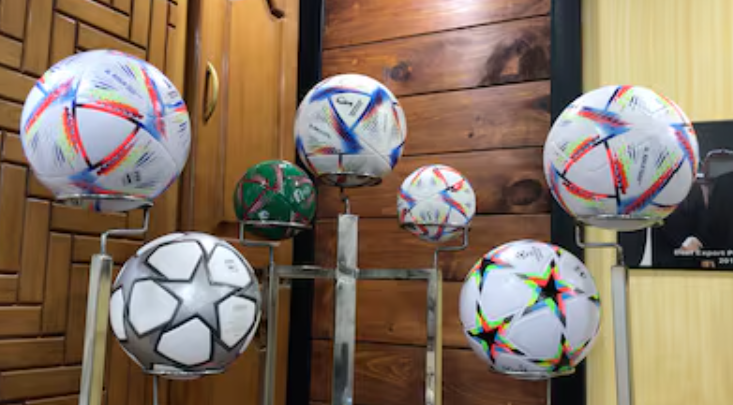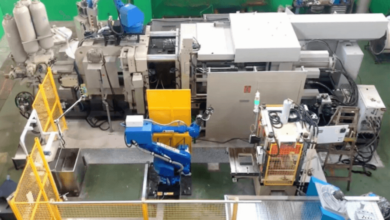Choosing the Right Sports Ball Supplier for Your Manufacturing Needs

In the manufacturing industry, sourcing a reliable sports ball supplier is essential to ensure quality, timely delivery, and competitive pricing. Whether producing footballs, basketballs, volleyballs, or other types of sports balls, partnering with the right supplier can significantly impact a company’s success and reputation. This article explores the key considerations when selecting a sports ball supplier and the benefits of making an informed choice.
Understanding the Role of a Sports Ball Supplier
A sports ball supplier provides the raw materials or finished products necessary for sports manufacturers and retailers. They play a crucial role in the supply chain by offering a variety of balls suitable for different sports, crafted with specific materials and specifications to meet industry standards.
Manufacturers often depend on these suppliers for bulk orders, customization options, and consistent quality. Therefore, understanding what to look for in a supplier can help businesses avoid costly mistakes and build long-lasting partnerships.
Key Factors to Consider When Selecting a Supplier
When evaluating potential sports ball suppliers, several critical factors should guide the decision-making process:
Quality Assurance
Quality is paramount in sports equipment manufacturing. The supplier must provide products that meet international standards, such as size, weight, durability, and bounce. Reputable suppliers implement stringent quality control processes and offer certifications that confirm compliance with relevant sports governing bodies.
Range of Products
A diverse product catalog allows manufacturers to source multiple types of balls from a single supplier. This convenience streamlines procurement and can lead to better pricing due to volume purchasing. Whether it’s footballs, basketballs, soccer balls, or training balls, the supplier’s inventory should be comprehensive.
Customization Capabilities
Many manufacturers require customized balls featuring logos, colors, or special designs. A supplier’s ability to offer these options is a significant advantage, especially for branding and marketing purposes. The capacity to handle custom orders with precision and timely delivery is a hallmark of a dependable partner.
Pricing and Payment Terms
Competitive pricing is essential, but it should not compromise quality. Transparent pricing structures, volume discounts, and flexible payment terms are signs of a reliable supplier. Manufacturers should also consider the total cost of procurement, including shipping and potential tariffs.
See also: Why CNC Machining China Is the Smart Choice for Global Manufacturing
Delivery and Logistics
Timely delivery affects production schedules and client satisfaction. Suppliers with efficient logistics networks and reliable shipping Sports ball supplier partners reduce the risk of delays. Clear communication about order status and tracking options further enhances the procurement experience.
Reputation and Reviews
Researching a supplier’s reputation through customer reviews, testimonials, and industry references helps verify their reliability. Long-term partnerships and consistent positive feedback indicate trustworthiness and professionalism.
Benefits of Partnering with a Reliable Sports Ball Supplier
Choosing the right sports ball supplier brings several advantages that contribute to smoother operations and business growth.
Consistent Product Quality
Reliable suppliers ensure that each batch of sports balls adheres to the same quality standards. This consistency is crucial for maintaining brand reputation and meeting client expectations, especially in professional sports or large-scale retail.
Cost Savings
Bulk purchasing through a dependable supplier often results in discounts and reduced shipping costs. Efficient suppliers also help minimize waste and defects, saving money in the long run.
Access to Innovation
Leading suppliers invest in research and development, offering innovative products such as eco-friendly materials or smart sports balls equipped with sensors. Partnering with such suppliers keeps manufacturers at the forefront of industry trends.
Flexibility and Support
Good suppliers provide excellent customer service and flexibility, accommodating urgent orders, special requests, and product modifications. This partnership approach fosters collaboration and problem-solving.
How to Build a Strong Relationship with Your Supplier
Developing a positive working relationship with a sports ball supplier is beneficial for both parties. Here are some tips to nurture this connection:
- Maintain clear and regular communication to avoid misunderstandings.
- Provide detailed specifications and feedback to ensure product accuracy.
- Honor payment terms and respect contractual agreements.
- Collaborate on product development and share market insights.
- Conduct periodic reviews to assess performance and identify improvement areas.
Challenges in Sourcing Sports Ball Suppliers and How to Overcome Them
Despite the importance of suppliers, manufacturers may face challenges such as:
- Quality inconsistencies: Regular testing and audits can mitigate this.
- Supply chain disruptions: Diversifying suppliers and building safety stock helps.
- Communication barriers: Choosing suppliers with multilingual support or local representatives improves coordination.
- Hidden costs: Requesting detailed quotations upfront avoids surprises.
Addressing these issues proactively ensures a smoother supply process.
Trends Shaping the Sports Ball Supply Industry
Several trends influence how sports ball suppliers operate today:
- Sustainability: Growing demand for eco-friendly materials and production methods.
- Technological integration: Smart balls with embedded technology for performance analytics.
- Customization: Increasing focus on personalized products for branding and marketing.
- Global sourcing: Manufacturers explore suppliers worldwide to optimize cost and quality.
Staying updated with these trends allows manufacturers to choose forward-thinking suppliers.
Conclusion
Selecting the right sports ball supplier is a strategic decision that can profoundly impact a manufacturer’s efficiency, product quality, and market competitiveness. By considering factors such as quality assurance, product range, customization, pricing, delivery, and reputation, businesses can form partnerships that support their growth and success.
A reliable sports ball supplier not only fulfills immediate needs but also contributes to innovation and sustainability in the manufacturing industry. Building strong supplier relationships and adapting to emerging trends will ensure long-term benefits and a competitive edge in the marketplace.




